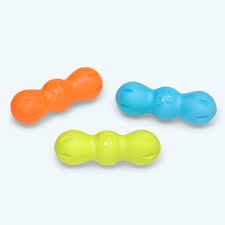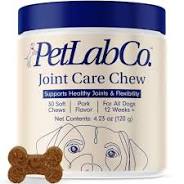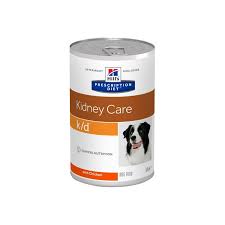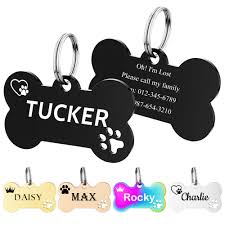The Importance of Chew Toys for Dogs
Dogs have a natural instinct to chew, and providing them with appropriate chew toys is essential for their well-being. Chew toys offer numerous benefits for dogs of all ages and breeds.
Benefits of Chew Toys:
- Dental Health: Chewing on toys helps to clean your dog’s teeth and gums, promoting good oral hygiene and reducing the risk of dental issues.
- Mental Stimulation: Chew toys provide mental stimulation and help prevent boredom, which can lead to destructive behaviors in dogs.
- Relieves Anxiety: Chewing can be a calming activity for dogs, helping to relieve stress and anxiety, especially in times of separation or change.
- Jaw Strength: Regular chewing can strengthen your dog’s jaw muscles and improve overall jaw health.
- Prevents Inappropriate Chewing: By providing your dog with appropriate chew toys, you can redirect their chewing behavior away from your belongings.
Choosing the Right Chew Toy:
When selecting a chew toy for your dog, consider the size of your dog, their chewing habits, and any specific preferences they may have. Opt for durable, safe materials that are non-toxic and designed to withstand heavy chewing.
It’s important to supervise your dog while they are chewing on a toy to ensure they do not ingest any parts or swallow large pieces that could pose a choking hazard. Rotate different toys regularly to keep your dog engaged and prevent boredom.
In Conclusion
Chew toys are more than just playthings for dogs; they are essential tools that promote dental health, mental stimulation, and overall well-being. By providing your furry friend with appropriate chew toys, you are not only keeping them entertained but also contributing to their physical and emotional health.
8 Benefits of Chew Toys for Your Dog’s Health and Happiness
- Promote dental health by cleaning teeth and gums
- Provide mental stimulation and prevent boredom
- Relieve stress and anxiety through calming chewing activity
- Strengthen jaw muscles and improve overall jaw health
- Redirect chewing behavior away from household items
- Offer a safe outlet for natural chewing instincts
- Help teething puppies soothe their sore gums
- Encourage positive chewing habits and discourage destructive behavior
6 Risks of Chew Toys Every Dog Owner Should Know
- Potential choking hazard if the toy breaks into small pieces.
- Some dogs may develop a habit of chewing on inappropriate items after using chew toys.
- Chew toys can wear down teeth if they are too hard or abrasive.
- Certain materials used in chew toys may cause allergic reactions in some dogs.
- Overuse of chew toys can lead to excessive jaw strain or muscle fatigue.
- Ingesting parts of a chew toy can result in digestive issues or blockages.
Promote dental health by cleaning teeth and gums
Chew toys play a crucial role in promoting dental health for dogs by effectively cleaning their teeth and gums. The act of chewing on these toys helps to remove plaque and tartar buildup, preventing dental issues such as tooth decay and gum disease. Regular use of chew toys can contribute to fresher breath, healthier teeth, and stronger gums, ensuring that your canine companion maintains optimal oral hygiene for overall well-being.
Provide mental stimulation and prevent boredom
Chew toys play a crucial role in providing mental stimulation for dogs and preventing boredom. Engaging with chew toys challenges their minds, keeping them mentally active and alert. This stimulation is especially important for intelligent and energetic breeds who thrive on mental challenges. By offering a variety of textures and shapes in chew toys, dogs are encouraged to explore, problem-solve, and stay entertained, ultimately leading to a happier and more contented pet.
Relieve stress and anxiety through calming chewing activity
Chew toys offer a valuable benefit for dogs by providing a calming chewing activity that helps relieve stress and anxiety. The repetitive motion of chewing can have a soothing effect on dogs, helping them relax and unwind during times of heightened emotions or uncertainty. By engaging in this natural behavior, dogs can channel their energy into a positive and comforting activity, promoting a sense of security and well-being.
Strengthen jaw muscles and improve overall jaw health
Chew toys play a crucial role in strengthening a dog’s jaw muscles and enhancing overall jaw health. Regular chewing on appropriate toys helps exercise the muscles in the jaw, promoting strength and agility. This activity can also aid in maintaining healthy teeth and gums by stimulating blood flow to the area, which contributes to better oral health for dogs. Strong jaw muscles are essential for various activities that dogs engage in, such as eating, playing, and carrying objects, making chew toys an important tool in keeping their jaws healthy and functional.
Redirect chewing behavior away from household items
Chew toys play a crucial role in redirecting a dog’s chewing behavior away from household items. By providing dogs with appropriate chew toys, pet owners can effectively steer their furry companions towards more suitable objects to satisfy their natural urge to chew. This not only helps protect valuable household items from being damaged but also promotes a positive and healthy chewing habit in dogs, ensuring a harmonious living environment for both pets and their owners.
Offer a safe outlet for natural chewing instincts
Chew toys offer a safe outlet for dogs to satisfy their natural chewing instincts. By providing dogs with appropriate chew toys, pet owners can redirect their pets’ chewing behavior away from destructive habits towards items that are designed to withstand their chewing strength. This not only helps protect household items from damage but also promotes healthy oral hygiene and mental stimulation for the dogs.
Help teething puppies soothe their sore gums
Chew toys play a crucial role in helping teething puppies soothe their sore gums. The act of chewing on a toy provides gentle pressure on the puppy’s gums, offering relief from the discomfort and pain associated with teething. By providing appropriate chew toys, pet owners can help their young dogs navigate this natural developmental stage more comfortably while also encouraging positive chewing habits.
Encourage positive chewing habits and discourage destructive behavior
Chew toys play a crucial role in encouraging positive chewing habits and discouraging destructive behavior in dogs. By providing dogs with appropriate chew toys, they are given an outlet for their natural chewing instincts, redirecting their focus away from household items or furniture. This not only helps to preserve your belongings but also promotes healthy chewing habits that can prevent dental issues and alleviate boredom or anxiety. Ultimately, chew toys serve as a constructive and beneficial tool in shaping a dog’s behavior towards more desirable and acceptable chewing practices.
Potential choking hazard if the toy breaks into small pieces.
One significant drawback of chew toys is the potential choking hazard they pose if the toy breaks into small pieces. Dogs, especially enthusiastic chewers, may inadvertently ingest these fragments, leading to a choking risk or intestinal blockage. It is crucial for pet owners to regularly inspect chew toys for signs of wear and tear and replace them promptly to minimize the risk of such accidents. Supervision while the dog is playing with a chew toy can also help prevent any potential choking incidents.
Some dogs may develop a habit of chewing on inappropriate items after using chew toys.
Some dogs may develop a habit of chewing on inappropriate items after using chew toys. This behavior can occur if a dog starts to associate all objects as potential chew toys, leading them to target items such as shoes, furniture, or household items. It is important for pet owners to monitor their dog’s chewing behavior and provide proper training to discourage this habit. Introducing a variety of chew toys and rotating them regularly can help prevent dogs from seeking out unsuitable items for chewing. Understanding your dog’s preferences and addressing any underlying reasons for inappropriate chewing can also play a significant role in curbing this behavior.
Chew toys can wear down teeth if they are too hard or abrasive.
Chew toys, while beneficial for dogs in many ways, can pose a risk to their dental health if they are too hard or abrasive. Toys that are excessively tough or rough can cause wear and tear on a dog’s teeth, potentially leading to dental issues over time. It is crucial for pet owners to choose chew toys that are specifically designed to be gentle on teeth and gums to avoid any negative impact on their furry friend’s oral health. Regularly inspecting the condition of chew toys and replacing them when they show signs of wear can help prevent tooth damage and ensure the safety of your dog’s dental hygiene.
Certain materials used in chew toys may cause allergic reactions in some dogs.
Certain materials used in chew toys may cause allergic reactions in some dogs. Dogs, like humans, can have sensitivities to certain substances such as rubber, latex, or artificial dyes commonly found in chew toys. Allergic reactions in dogs can manifest as skin irritation, itching, redness, or even gastrointestinal issues if the material is ingested. It is important for pet owners to carefully monitor their dog’s response to new chew toys and consult with a veterinarian if any signs of allergies or adverse reactions are observed. Opting for hypoallergenic or natural materials when selecting chew toys can help minimize the risk of allergic responses in sensitive dogs.
Overuse of chew toys can lead to excessive jaw strain or muscle fatigue.
Excessive use of chew toys can potentially result in increased jaw strain and muscle fatigue in dogs. Just like any repetitive activity, prolonged chewing on hard toys may put undue stress on the jaw muscles, leading to discomfort or even injury over time. It is important for pet owners to monitor their dog’s chewing habits and provide a variety of toys to prevent overuse of a single toy, allowing for adequate rest periods to prevent excessive strain on the jaw muscles.
Ingesting parts of a chew toy can result in digestive issues or blockages.
One significant drawback of chew toys is the potential risk of dogs ingesting parts of the toy, which can lead to digestive issues or blockages. When dogs chew on toys, especially if the toy is not durable or if they are aggressive chewers, there is a risk that they may break off and swallow small pieces. These swallowed fragments can cause harm as they pass through the digestive tract, potentially leading to discomfort, blockages, or even more serious health complications. It is crucial for pet owners to monitor their dogs while they are playing with chew toys to prevent any ingestion of toy parts and ensure their safety and well-being.




